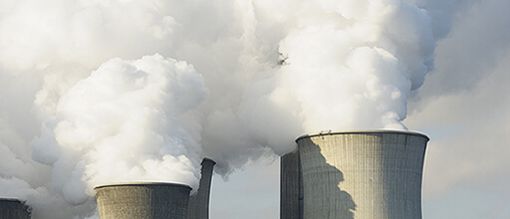A new report from CELCOR (Centre for Environmental Law and Community Rights Inc) and the Jubilee Australia Research Centre has raised significant concerns about a proposal from an ASX listed Australian energy company, Mayur Resources, to build the Pacific’s first coal-fired power station in Papua New Guinea,
Brisbane-based Mayur Resources,, plans to build a 52MW coal-fired power station sited at Lae wharf, within the city limits, in PNG’s second largest city.
Jubilee and CELCOR’s report argues that the project is unnecessary, that it would have serious health and environmental impacts and the electricity it generates would largely benefit only mining companies, not communities. The report also highlights how the plant Papua New Guinea would undermine future renewable initiatives as well as lock in higher energy prices.
While Mayur Resources has claimed that coal power will benefit PNG, the CELCOR and Jubilee Report has made a range of allegations, principally that:
- Mayur Resources’s claim that the extra electricity produced by the plant would benefit the people of PNG who are missing out on electrification is largely unfounded, and that the principal beneficiaries would be Canadian, Australian and South African mining companies.
- There has been a distinct lack of community consultation, especially with the nearby community of Labu Butu, which is just 500 metres from the proposed site.
- The health impacts of putting a large coal-fired power plant so close to a major population centre such as Lae would be substantial.
- Mayur Resources’s claim that it can produce electricity at a significantly lower tariff than hydro and biomass is highly questionable, which raises real questions about the economic viability of the project and locking PNG into high power prices.
- Starting a coal industry to help meet PNG’s energy needs is completely unnecessary. PNG already sources much of its energy from hydro, and is developing more hydropower plants. It is also developing its first biomass and solar plants. All of these are better options for improving supply to the grid than coal.
- The regulatory approval process has been riddled with irregularities, raising deep concerns about the integrity of the governance processes.
- A coal-fired power plant in Papua New Guinea would undermine Papua New Guinea’s national climate plan under the Paris Agreement, committing to transition to 100% renewable energy by 2030.
The report is available here.
Quotes:
Luke Fletcher, Executive Director of the Jubilee Australia Research Centre said:
“It has been eight years since Australia built a new coal-fired power station in our own country, because coal is now both more expensive and causes worse health and environmental consequences than renewables. If we are no longer building coal plants here, why would we start building them in PNG?
“Moreover, Mayur clearly does not have a social license to operate in the wake of Rio Tinto destroying sacred artifacts at Juukan Gorge in Western Australia and BHP’s co-ownership of a coal mine in Chile accused of human rights abuses, this is yet another example of Australian companies pushing through a project without proper community consent.”
Mr Peter Bosip, the Executive Director of CELCOR, said:
“This report shows that PNG does not need coal-fired power, which is more expensive and more polluting than the many renewable energy sources - hydro, solar and biomass - that we already have available. This project does not stack up. It isn’t in the national interest of Papua New Guinea and could lock the people into more expensive and dirty power for 25 years.
“We are calling for PNG Power Ltd should immediately reject Mayur’s proposal for a PPA (Power Purchase Agreement) and the government should place a moratorium on coal extraction and combustion in this country.”
